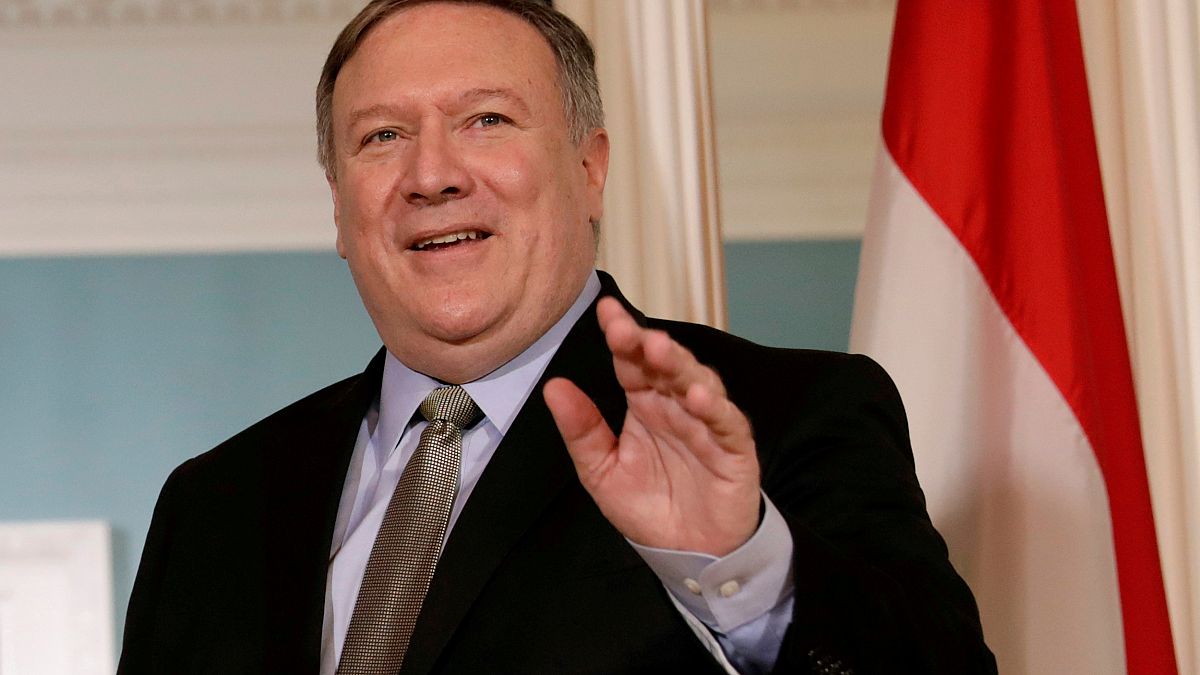The US Secretary of State has invited North Korea’s foreign minister for talks next week and aims to achieve denuclearisation by 2021.
The United States says it’s ready to resume talks with North Korea immediately, aiming to complete denuclearisation by 2021, following the Pyongyang summit between the leaders of North and South.
US Secretary of State Mike Pompeo says he has invited North Korea’s Foreign Minister Ri Yong-ho to meet in New York next week.
The latest move follows commitments by Kim Jong Un at his talks with Moon Jae-in. The North Korean leader says he has agreed to close a major missile launch site, and on a path to denuclearisation.
Scaling new heights
On the final day of their three-day summit, Moon and Kim visited Mount Paektu, a volcano near the Chinese border with the North that is part of Korean folklore. The South Korean president said he had long wished to trek in the area and now believed that “Chairman Kim will make that dream come true”.
Earlier, Moon was cheered as he spoke of denuclearisation in a speech to 150,000 North Koreans.
Little progress had been made since Donald Trump’s summit with Kim Jong Un in June, and Pompeo cancelled a planned trip to Pyongyang in August. The mood now is upbeat again – although critics say there is little detail in North Korea’s commitments to hold it to account.
“This will mark the beginning of negotiations to transform US-DPRK (North Korea) relations through the process of rapid denuclearisation of North Korea, to be completed by January 2021, as committed by Chairman Kim, and to construct a lasting and stable peace regime on the Korean Peninsula,” the US Secretary of State said in a statement.
Devil in the detail
At a joint news conference, South Korea’s president said the North would allow experts from “concerned countries” to watch the closure of its missile engine testing site and launch pad at Tonchang-ri.
Monitoring groups say the site has become North Korea’s main launch facility, carrying out tests on engines for missiles capable of reaching the US.
Moon Jae-in added that North Korea would go further and was ready to close its Yongbyon nuclear complex – if the United States undertook unspecified reciprocal measures.
It is unclear what these measures would be, although South Korea’s national security adviser Chung Eui-yong said it could include a formal declaration of the end of the 1950-53 Korean war.
Analysts say King Jong Un has made such statements before, and there is still doubt over what any verification process would entail.
Nevertheless, the latest talks are seen as having made progress. Leaving aside the issue of nuclear weapons, defusing tensions which could head off the danger of an accidental flare-up is also a valuable exercise.
Trump 'excited'
On Wednesday President Trump tweeted his response, describing the developments as “very exciting”, and China said it warmly welcomed the agreement reached in Pyongyang and strongly supported it.
However, some US officials detect an attempt by Pyongyang to divide Seoul from Washington – improving relations and increasing cooperation in a bid to ease the economic pressure to curb nuclear programmes, and undermine the case for US troops to be based in South Korea.
Other experts and analysts believe North Korea still has other secret nuclear facilities. The country has stopped nuclear and missile tests in the past year but did not allow international inspections of a test site in May.
Mike Pompeo’s citing of a January 2021 deadline for complete denuclearisation is being seen as a sign that Washington is prepared to keep up the pressure, to avert prevarication from the North.
